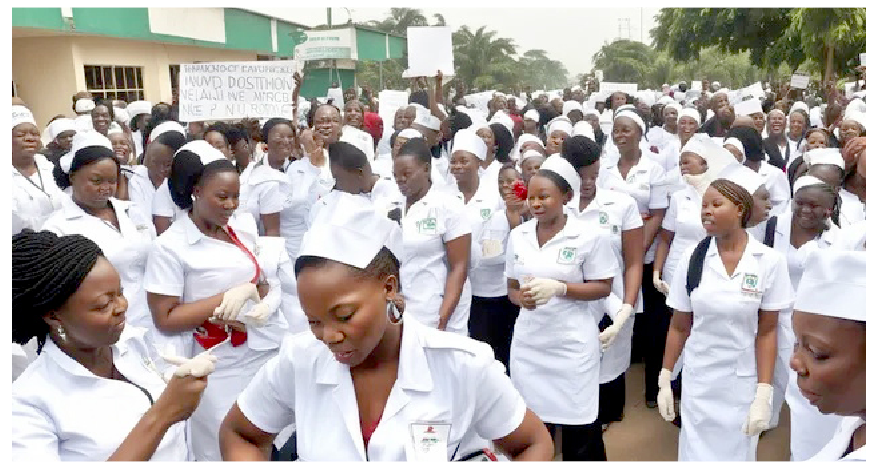
Nigerian nurses and midwives have called off a nationwide warning strike after reaching a temporary agreement with the federal government, but the underlying tensions within the healthcare system remain unresolved.
The week-long industrial action, launched on July 30 by the National Association of Nigeria Nurses and Midwives (NANNM), came to a halt on August 1 following the signing of a memorandum of understanding between union leaders and federal authorities.
The agreement promises urgent intervention on key demands, including salary improvements, employment stability, and the recruitment of additional health workers.
However, the end of the strike does not signify the resolution of deep-rooted grievances. For many nurses, the government’s history of unmet promises casts a long shadow of skepticism.
“This agreement must be fully implemented without delay,” said Haruna Mamman, National President of NANNM. “Our Executive Council will be watching closely. If the government fails to act swiftly, we will not hesitate to resume the strike.”
The protest was driven by long-standing frustrations over what the union describes as “inhumane and unsustainable” working conditions in public health institutions.
Many nurses reportedly earn less than €170 per month, often without night duty allowances or job security. Chronic understaffing and a surge in the migration of healthcare professionals to more supportive environments abroad have further strained the system.
The slogan “Caring for caregivers means strengthening the economy” gained traction both on the streets and across social media, encapsulating the sector’s collective frustration and the urgent call for reform.
Government officials, including Health Minister Ali Pate and Labour Minister Muhammad Dingyadi, have pledged not only to honor the terms of the agreement but also to protect striking workers from any punitive measures.
Still, the strike’s suspension is widely seen as a fragile truce rather than a victory. The health sector’s human resource crisis remains acute, and experts warn that without structural reforms to retain medical personnel, the outflow of talent will continue to cripple the already strained healthcare system.
For now, nurses across Nigeria await visible changes — not just in policy but in their daily realities. Until then, the possibility of renewed protests remains firmly on the table.



